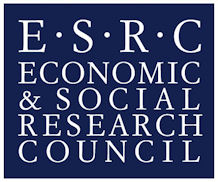This scheme is for academic scientists who want to work on a collaborative project with industry and for scientists in industry who want to work on a collaborative project with an academic organisation.
It aims to enhance knowledge transfer in science and technology between those in industry and those in academia in the UK.
The scheme provides a basic salary for the researcher and a contribution towards research costs.
The scheme is funded by the Royal Society, the Engineering and Physical Sciences Research Council the Biotechnology and Biological Sciences Research Council, the Natural Environment Research Council, Rolls-Royce plc and BP plc.
The scheme covers all areas of the life and physical sciences, including engineering but excluding clinical medicine.
The applicant must:
- have a PhD or be of equivalent standing in their profession
- hold a permanent post in a university, not-for-profit research organisation or industry in the UK
- be at a stage in their career when they would particularly benefit from establishing or strengthening personal or corporate links between academia and industry as a foundation for long-term collaboration and development
Applications involving spin-offs or small companies are encouraged. Applicants should clearly state how the fellowship will benefit the not-for-profit research organisation, especially in cases where the applicant has financial involvement within the company. Applicants should also state which complementary skills the employees at the company can offer.
Applicants should ensure that they meet all the eligibility requirements, which can be viewed in scheme notes (PDF).
The applicant’s basic salary is provided while on secondment but the employing organisation continues to pay national insurance and pension contributions.
Research expenses may be claimed up to the value of £2,000 per year. Awards can be for any period up to two years full-time or a maximum of four years pro rata. (i.e. an award could be held at 50% part-time for four years enabling fellows to maintain links with their employing institution more easily).
For further information go to https://royalsociety.org/grants/schemes/industry-fellowship/







 Sir Isaac Wolfson FRS (1897-1991) was a businessman who distributed most of his fortune to good causes.
Sir Isaac Wolfson FRS (1897-1991) was a businessman who distributed most of his fortune to good causes.

Closing date 16 Jun 15
For further information go to:
http://www.raeng.org.uk/grants-and-prizes/schemes-for-people-in-industry/visiting-professors-in-innovation